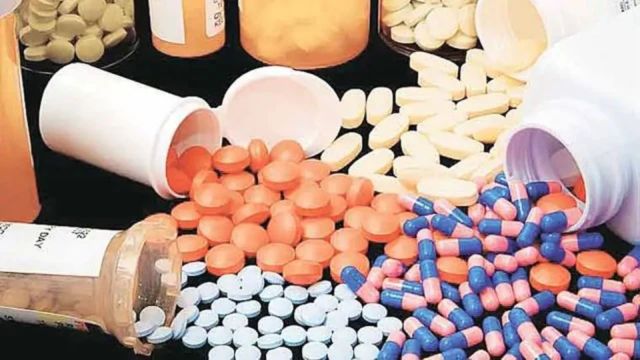New drugs for weight loss, Alzheimer’s or cancer, that have been approved by top regulatory authorities abroad but are awaiting approval in India, will no longer be required to undergo clinical trials in the country.
Pharma companies can now obtain regulatory clearance to sell their products in India if they can demonstrate that their new drugs offer a “significant therapeutic advance over the current standard of care,” and have been approved by regulators in any of six countries or regions. These are the United States, United Kingdom, Japan, Australia, Canada, and the European Union — all known for their rigorous regulatory approval process.

This significant order, passed by the Drug Controller General of India (DGCI) on Wednesday, has waived clinical trials for new drugs for rare diseases, gene and cellular therapy, new drugs in a pandemic situation, and new drugs for “special defence purpose.”
Story continues below this ad
WHAT THE NEW ORDER MEANS
At present, a company must conduct a clinical trial in India even if the drug has been approved globally. The trial must be approved by a committee under the drug regulator. The new rules ease access and will benefit patients with rare diseases or cancers with specific genetic markers.
The exemption was included in the 2019 New Drugs and Clinical Trial Rules but had not been utilised until now because the drug regulator had not specified which countries’ approvals could be used to waive local trials. Wednesday’s notification clears the way for that.
YOU CAN NOW HAVE BLOCKBUSTER DRUGS
The move is expected to accelerate the availability of popular weight loss drugs like GLP-1 receptor agonists, such as semaglutide and tirzepatide, for treating diabetes and obesity. It will also expedite the entry of drugs like donanemab, which slows cognitive decline in early Alzheimer’s patients, as well as cancer therapies like Tarlatamab (lung cancers) and Tovorafenib (pediatric brain tumour), into the Indian market.
WHAT ABOUT MONITORING SIDE EFFECTS?
However, the drugs approved through this waiver mechanism will still have to carry out “Phase IV post-marketing surveillance” to keep a watch on any serious adverse events. “This step has been taken to ensure early access to cutting-edge therapies, especially drugs meant for rare diseases, where trials can take longer to recruit participants itself. These are not untested medicines — these are medicines that have already been approved in other countries with strict regulatory processes,” said a senior health ministry official.
Story continues below this ad
However, sources said that the DGCI’s Subject Expert Committee, which reviews clinical trial data before granting final approval, will still have the authority to require a company to conduct a clinical trial if there is scientific evidence suggesting that the new drug might behave differently in the Indian population.
“There are a few drugs that might work differently in the Indian population as compared to others. If need be, the committee will still have the discretion to insist on a clinical trial, providing in writing the reason why it should be done,” the official said.
WHAT OF DRUGS UNDERGOING CLINICAL TRIALS?
Additionally, any drug currently undergoing clinical trials in India that has already been approved by these international regulators can reapply for this waiver, say officials.
According to the New Drugs and Clinical Trial Rules 2019, local clinical trials may not be required if a new drug is approved in specified markets, no major adverse events have been reported, a global trial with Indian sites is ongoing, there is no evidence that enzymes or genes in the Indian population affect the drug’s safety and efficacy, and the applicant has provided an undertaking to conduct phase IV trials.
Story continues below this ad
“The drug regulator has been waiving local trials for drugs approved in other countries — now the countries have been specified. The rationale for this waiver is that the drug is likely to perform in the same way in the Western population and Indian population. It is unethical to repeat a clinical trial because it deprives a group from the best available medical treatment. It is however possible that some drugs may perform differently on the Indian population. Hence, it should not be a blanket waiver. As long as a committee looks into it and transparently states the scientific reasons for providing a waiver from local clinical trials, it should be fine,” said Prashant Reddy T, a lawyer specialising in drug regulations.
WHAT DOES THIS MEAN FOR DRUG PRICES?
According to a Health Ministry official, “This will not only benefit multinational drug companies, it will also be very beneficial for big drug manufacturers of the country. Say an Indian company gets a manufacturing licence for an international company’s drug — conducting a local trial for approval significantly adds to their costs. Now, they may be able to save on clinical trials and subsequently price the products at a lower cost.”

































